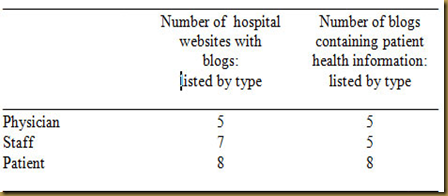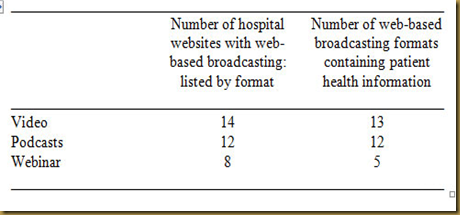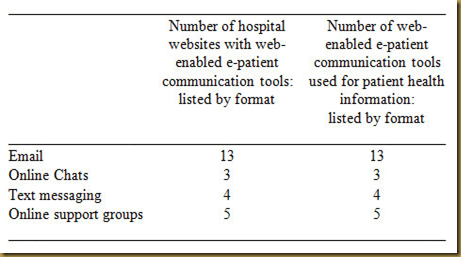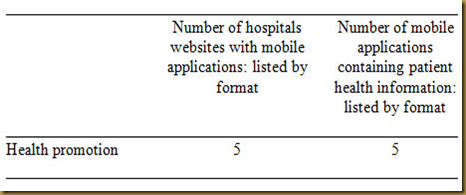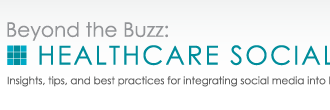A key component of cost containment in medicine and healthcare is wellness and compliance with treatments using educational courses, advocacy in groups of specific illness and support organizations to encourage patients with or without devastating illness. This is particularly true in orphan diseases where a disease is uncommon or even rare, and chronic illnesses such as degenerative neurologic diseases, inherited diseases and cancer.
How can social media platforms such as twitter, blogs, facebook and G+ contribute to this effort?
A key component of cost containment in medicine and healthcare is wellness and compliance with treatments using educational courses, advocacy in groups of specific illness and support organizations to encourage patients with or without devastating illness. This is particularly true in orphan diseases where a disease is uncommon or even rare, and chronic illnesses such as degenerative neurologic diseases, inherited diseases and cancer.
How can social media platforms such as twitter, blogs, facebook and G+ contribute to this effort?
Hospitals are integrating these functions into their web sites
“As units of analysis, the authors first identified different types of online media formats utilized by each hospital (eg, blogs, instant-messaging, audio clips, and video clips etc.). After identifying media formats, patient health information content (eg, disease information, symptom checkers, and health education) was identified within each media format.”
In a recent study of 14 hospitals:
‘The 14 hospitals, ranked in order, include: (1) Johns Hopkins Hospital, Baltimore; (2) Mayo Clinic; Minnesota; (3) Massachusetts General Hospital, Boston; (4) Cleveland Clinic; (5) Ronald Reagan UCLA Medical Center, Los Angeles; (6) New York-Presbyterian University Hospital of Columbia and Cornell; (7) University of California, San Francisco Medical Center; (8) Barnes-Jewish Hospital/Washington University, St. Louis; (9) Hospital of the University of Pennsylvania; Philadelphia; (10) Duke University Medical Center, Durham, N.C.; (11) Brigham and Women’s Hospital, Boston; (12) University of Washington Medical Center, Seattle; (13) UPMC-University of Pittsburgh Medical Center; and (14) University of Michigan Hospitals and Health Centers, Ann Arbor.[13]”
(author)
This study in The Journal of Participatory Medicine is heavily skewed with major academic hospitals already ranked in the upper echelon of hospitals and all in major metropolitan areas, and the results do not truly indicate the overall adoption rate throughout the country. However since hospital web sites are online the information is easily accessible to the public.
The study also emphasizes the importance and necessity for broadband internet access throughout the country as a major public health imperative. It should also serve as a driver for either federal or state funding from public health agencies as part of their operating budget. The use of internet media and social media may serve to decrease public health education using other media.
Blogs:
Social Media:
Analysis of Social Media Platforms used by surveyed. Hospitals
Broadcast media:
Web Enabled Communications
Mobile Apps
Citation: Gallant LM, Irizarry C, Boone G, Kreps G. Promoting participatory medicine with social media: new media applications on hospital websites that enhance health education and e-patients’ voice . J Participat Med. 2011 Oct 31; 3:e49.
Physicians should note that Social Media is here, and most likely will stay. The APIs (Application Platform Interfaces) are designed for users to layer their own specific software needs over the social media websites. It would seem that hospitals and physicians can easily integrate a social media site into their EMR. EMR vendors may choose to integrate SM into their products as well, with special attention to HIPAA regulations.

